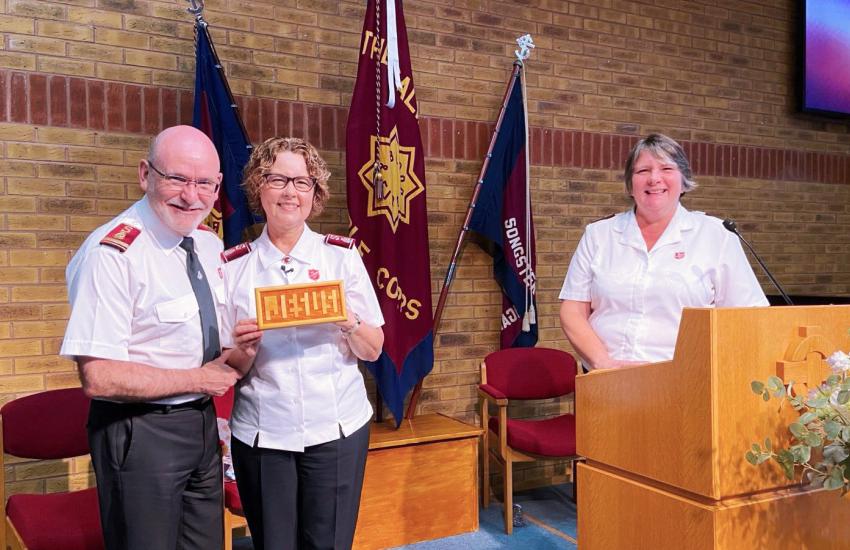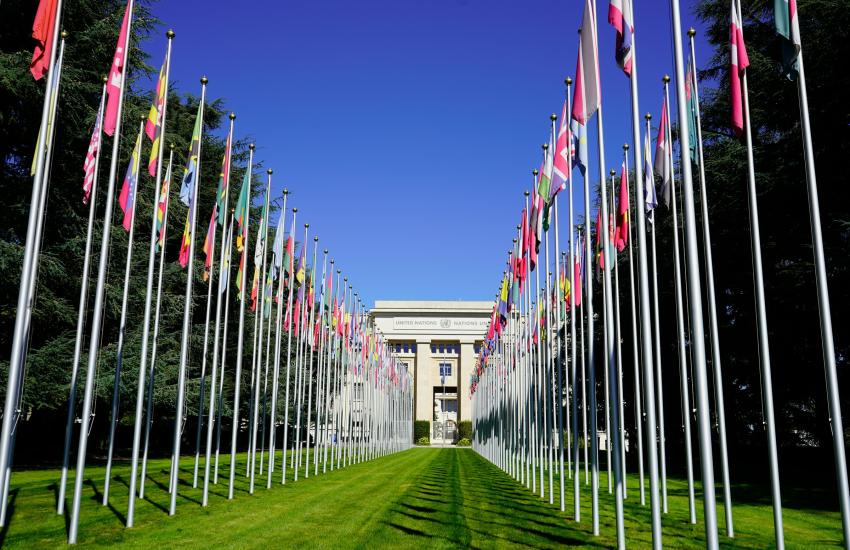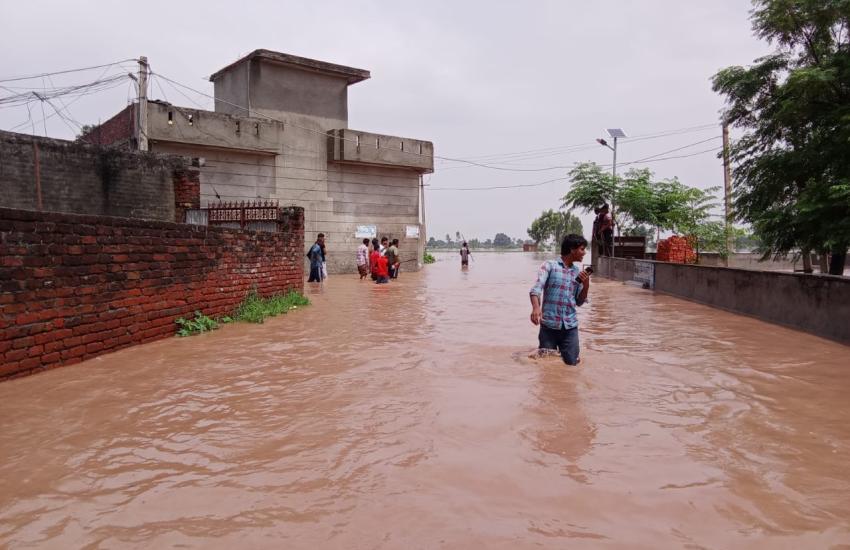Managing Change and Striving for Excellence
David S. Massaquoi, Director of Education in The Salvation Army’s Liberia and Sierra Leone Command, shared with Jo Clark (Programme Resources, International Headquarters) how his team has gone the extra mile to continue providing high-quality schooling despite the difficulties caused by the COVID-19 pandemic.

WORKING as an education leader in Liberia was already challenging even before COVID-19, as we were navigating our way in a post-conflict and post-Ebola environment in one of the economically poorest countries of the world. Partnering with the government, and others, to tackle immense challenges in order to bridge gaps in education provision was our norm – as was working within the daily paradox of high expectations (in terms of both quality and quantity of education provision) and limited resources. COVID-19 came to meet us in that context.
Being part of an organisation that believes in people, and in the importance of developing the minds of young people, is an immense blessing – as is the knowledge of the encouragement and support for our mission that comes from across the international Salvation Army. In light of this, I am really happy and excited to be able to send greetings and to share something of our story, and of my personal story, in order to encourage others.
In my experience, most people start the new year with aspirations; personal, professional and career goals, progress towards which can be assessed at the end of the year. I can personally say that COVID-19 very much interfered with mine this year! In fact, those of our entire team have been disrupted!
As an education team, we had made a thorough assessment of our challenges and achievements during 2019, and were able to start 2020 with our dreams for moving forwards and with clear plans to achieve these. To be blunt, these were shattered.
The learning methodology supported in our schools and colleges was based around traditional classroom, group-based, interactive learning. Overnight this was suddenly no longer possible and we were forced into doing some immediate ‘thinking outside the box’.
It has taken some quite exceptional bending of minds to be able to come together to face, and solve, these problems.
Already school enrolment levels in Liberia were at just 44 per cent, resulting in correspondingly low literacy rates (just 48-52 per cent). With the abrupt closure of schools due to COVID-19, the greatest immediate challenge was how we could provide opportunities for remote learning in order to keep our students engaged.
As a first step we began by planning how we could deliver printed hard-copy learning materials to the homes of our students. This solution fitted well with our traditional learning programme, despite the need for implementation of a whole range of hygiene protocols to keep both our staff members and students safe.
Incredibly, through the immense efforts of our staff, we were able to reach 3,582 of our 4,460 students (80 per cent) with this mode of structured continuous learning. As a second step we moved into online (social media) classrooms and other forms of learning through technology. Although this has seen some positive outcomes, we have only been able to reach a quarter of our students with this form of learning due largely to the lack of access to basic technology devices. The availability and affordability of technology poses a severe limitation for most families.
Another reality is that we recruited our teachers on the basis of their classroom teaching experience and capacities, rather than on the extent of their technological skills. Using technology to deliver remote learning therefore posed a huge challenge for many.
COVID has brought this technological dimension onto our immediate horizon and we have come to realise that, even in any kind of ‘new normal’ moving forwards, it will play a greater role in our lives and our work.
As a result, we have already begun to develop new types of training and orientation on ‘the use of technology for instruction’ to bring our current staff up to speed, in case of both a resurgence of the virus in the short/medium-term as well as thinking of the long-term direction of education and learning.
At the very end of June we were able to begin the first phase of our safe return to school.
Following the announcement from other west African countries (Nigeria and Ghana) of the intention for their senior students to sit their final West African Senior School Certificate Examinations (WASSCE) in the second half of August, Sierra Leone, The Gambia and Liberia then followed suit.
We have therefore prioritised our final year secondary students in four schools in the first phase of our school reopening, in order that they received the support they needed in the lead up to their exams, which successfully took place between 17 August and 2 September.
In preparation for a phased return to school, many online planning meetings had already been held with our school administrators so we would be ahead of the curve. In these we strategised well and were able to take key decisions and plan meticulously.
In close consultation with the International Headquarters (IHQ) Schools desk, we developed safe return-to-school guidelines which were well adapted to our local perspective. In fact, at the time, we were the only school system in the country with such guidelines, and in this we have been able to lead and to share with others.
All our schools now have the guidelines and have started to execute them. Thorough assessments have been made in each place of our capacity to implement them and we have made plans to address any challenges and mitigate any shortcomings. Where necessary, IHQ has been able to help us with funding to do this; strengthening our capacity to be safe.
COVID safety training has been conducted for all school staff (teaching and non-teaching) so that all have good knowledge of the protocols necessary to maintain health and safety. In this we have had support and advice from a former student who works in the institute of public health and also from the county health team.
Of the 542 final-year students expected back to school, the first week saw 440 return. In subsequent weeks this number has gradually increased closer to 500. Some students have not returned due to illness, pregnancy, apprehension or their family’s relocation out of the area during the COVID closure.
For those who have returned, our teaching staff have developed a compressed and condensed curriculum. They have worked hard to produce electronic notes and printed materials to give to the students so that the classroom contact time can be spent focusing on reviewing and analysing these materials, rather than taking notes.
We have also added some Saturday school classes (extending the study week for most students to six days) and are exploring options for lengthening the usual school days with additional support for Seventh-Day Adventist students so they are still able to respect their Saturday sabbath.
Without these interventions, our students could have lost the equivalent of 60 per cent of the teaching semester. Now, with the time, energy and commitment of our staff, we believe that we can narrow that impact to something more like 10 per cent.
Our schools are among very few establishments in the country which have been able to keep paying teaching staff throughout the COVID lockdown. Financial support from the international Salvation Army has enabled us to do this. This support has been crucial and has meant that our staff can stay focused, remaining strongly motivated and ready to work.
Throughout this crisis, the parents of our students have been able to see something of what our teachers go through as they have had their share of frustration while their kids have been at home. They have had to play the role of proxy teachers during these weeks and so they now see the school and staff from a quite different perspective!
This has meant that they also have been cooperative as we move forwards, helping us to explain to their children the importance of managing social distancing during the walk to and from school alongside what we are able to regulate with staggered recess times while they are in school.
The return of our year 12 students has been manageable in terms of numbers, but we are now planning for how we might return other class groups to school. The need to maintain social distancing presents us with the challenge of the amount of space we need to allocate to each student and the amount of furniture we need to provide (as students are no longer able to share desks). The plan just now is to return the other school year groups gradually once the exam classes have left. This gives us opportunity to learn from what we have already done, in order to keep our students in school safely.
Other aspects of our work have understandably transferred online. Continued communication with staff, the examinations council, the government Department of Education and the network association for faith-based schools have all been made possible through technology.
The ability to have flexible working hours from home has also been good. It has enabled me to reduce my travel time and to give more focus to my job. Although, on the other hand, with my wife and children also being at home my focus has been divided at times!
My children have been attending Salvation Army schools. My son has just finished at William Booth High School and my daughter is currently an 11th-grade student at our Len Millar Junior and Senior High School. For me, it is important that those of us who work with our Salvation Army schools in Liberia test the product we provide for the families of other children. This challenges and motivates us each day to do the very best to improve the sector for our own children, as well as for others.
Although The Salvation Army is one of the most recent missions to provide education in the country (most Christian missions came to Liberia in the 1850s but we only started our schools in 1992) we are moving forwards faster than many in the provision of quality education, management and leadership and are among the best performing in the country.
Our aim, in the midst of these challenging times, is to continue working to maintain this quality and keep the momentum going, and even extend our services to Sierra Leone and Guinea when the time is right. With the continued support of our dedicated staff and international partners we know this is possible.
We have now seen that technology and digital learning will be taking the frontline in the months and years to come and that after COVID-19 we will have the possibility of (and will need) quite a different education programme – learning fit for the 21st century.
Of course, just as with Ebola, we will all need time after the virus has passed to readjust, but eventually our fears, our social interactions and our ways of working will all settle again to a new pattern.
What I can already see, though, is that COVID-19 has necessarily made me into a very different kind of education director to that which I was before the pandemic began.
Feature by IHQ Communications
International Headquarters
- Photos are available via the IHQ Flickr channel: sar.my/massaquoi
- Updates as The Salvation Army continues to respond to COVID-19 around the world can be found at sar.my/covid19






